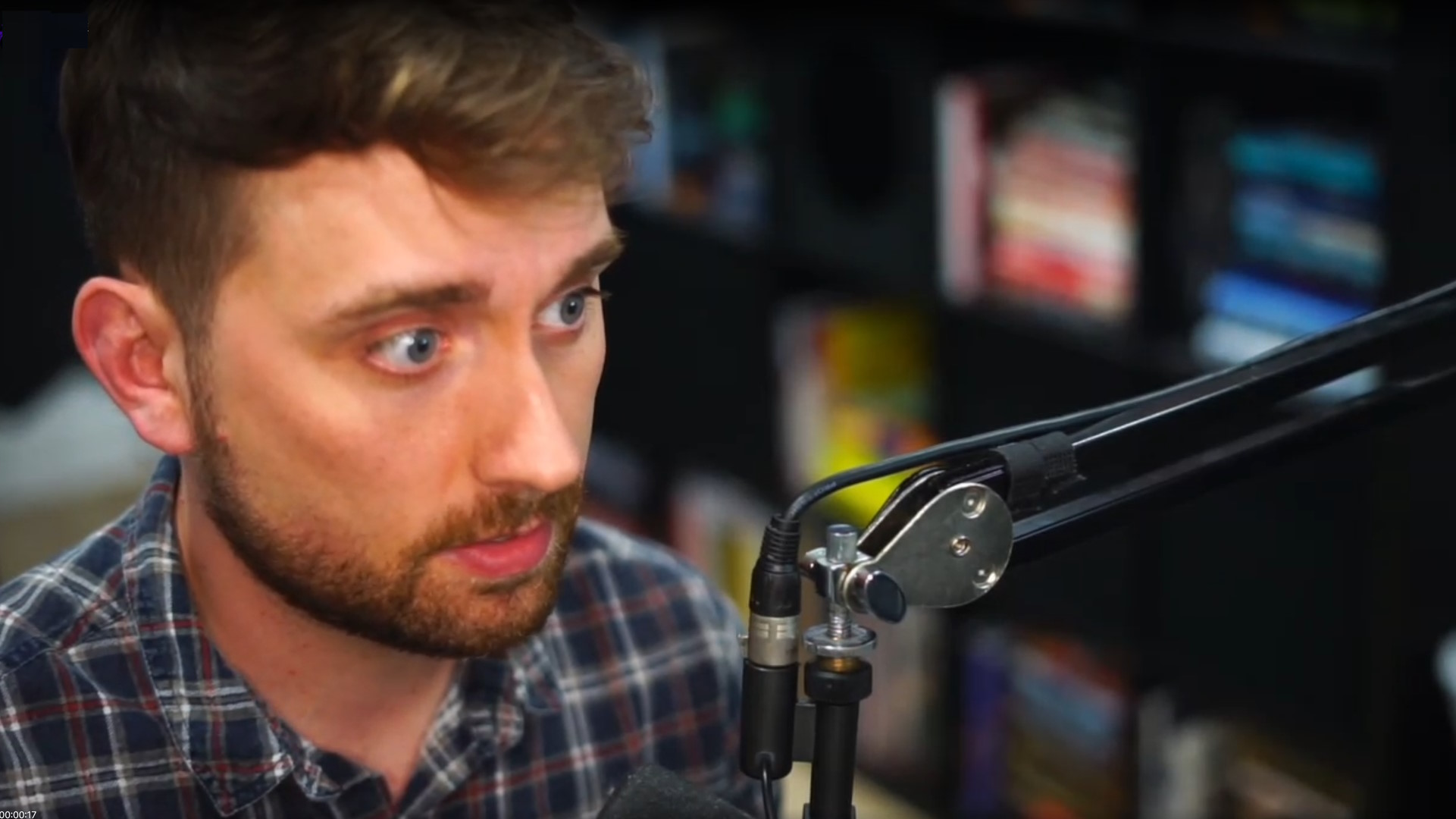Streamer who got busted with deepfake porn of other streamers is now crusading against deepfake porn
Six weeks after a tearful apology, Brandon “Atrioc” Ewing says he now wants to help streamers get deepfake videos taken offline.

In January, streamer Brandon “Atrioc” Ewing accidentally revealed to the world that he had a thing for deepfake porn—explicit photos and videos faked with AI—featuring popular Twitch streamers including Maya Higa and Pokimane. He made a tearful apology video and then posted a statement on Twitlonger, saying it would be the last time we'd hear from him "for a while." Now, after taking roughly six weeks to reflect, he's back, rebranded as an anti-deepfake porn vigilante.
As reported by Kotaku, Ewing said in a March 14 stream that he's been working with "reporters, technologists, researchers, [and] women affected" over the past several weeks to figure out ways to combat deepfake porn. He also wired $60,000 to Los Angeles-based law firm Morrison Rothman to help cover the costs of women who want to use the firm for takedown requests or "reputation management." The law firm confirmed to the site that the amount had been paid, "to be used exclusively for women affected by deepfakes and similar issues."
Ewing also said that he's now working with Ceartas, a company that offers AI-powered identification and removal of illegal content from more than 150,000 websites and search engines. Ceartas claims its service, which has multiple subscription offerings beginning at $99 per month, has a 98% success rate, and has saved creators more than $250 million in lost revenues. It's also been certified as an official "Partner in Safety" by OnlyFans.
Other streamers are joining him to continue testing the Ceartas system, Ewing said, including at least one who was being portrayed in the deepfake porn he was caught looking at in January. He also said that, just a day or two prior to his stream, Kaitlyn "Amouranth" Siragusa reached out to him to inquire about the service.
"She had heard about the work I was doing, I guess somehow," Ewing said. "I had not spoken to her. And she asked if I could help her get stuff taken down. That's really validating, because that means it must have been working for someone, and then the word spread or whatever. I don't know. But she reached out. So now I'm working with her.
"Anyone who thinks that this is a problem for them, and thinks that I can be able to help, I'm happy to do it. Legitimately happy to do it, I would love to help."
Ewing's shift from deepfake consumer to anti-deepfake crusader was quick, to say the least, and not everyone is convinced just yet: One streamer on Twitter credited him for using his own money to help get deepfake videos taken down but added, "He only did it because he got caught."
The biggest gaming news, reviews and hardware deals
Keep up to date with the most important stories and the best deals, as picked by the PC Gamer team.

Andy has been gaming on PCs from the very beginning, starting as a youngster with text adventures and primitive action games on a cassette-based TRS80. From there he graduated to the glory days of Sierra Online adventures and Microprose sims, ran a local BBS, learned how to build PCs, and developed a longstanding love of RPGs, immersive sims, and shooters. He began writing videogame news in 2007 for The Escapist and somehow managed to avoid getting fired until 2014, when he joined the storied ranks of PC Gamer. He covers all aspects of the industry, from new game announcements and patch notes to legal disputes, Twitch beefs, esports, and Henry Cavill. Lots of Henry Cavill.

